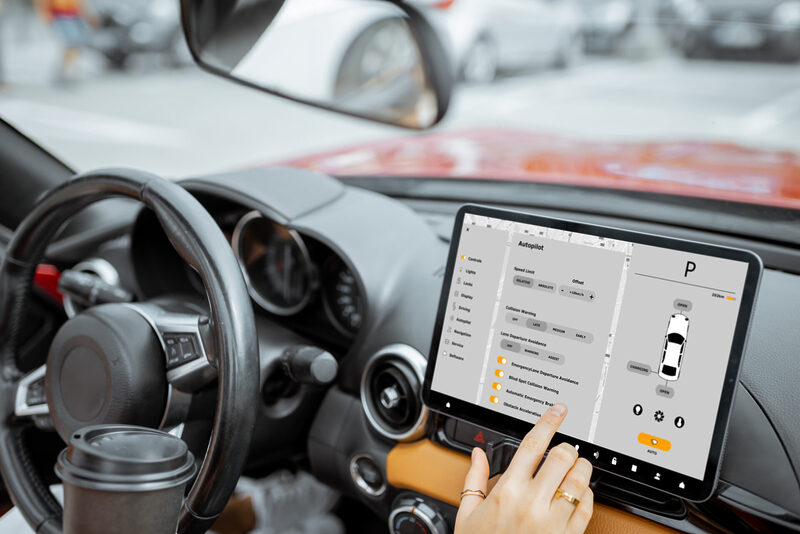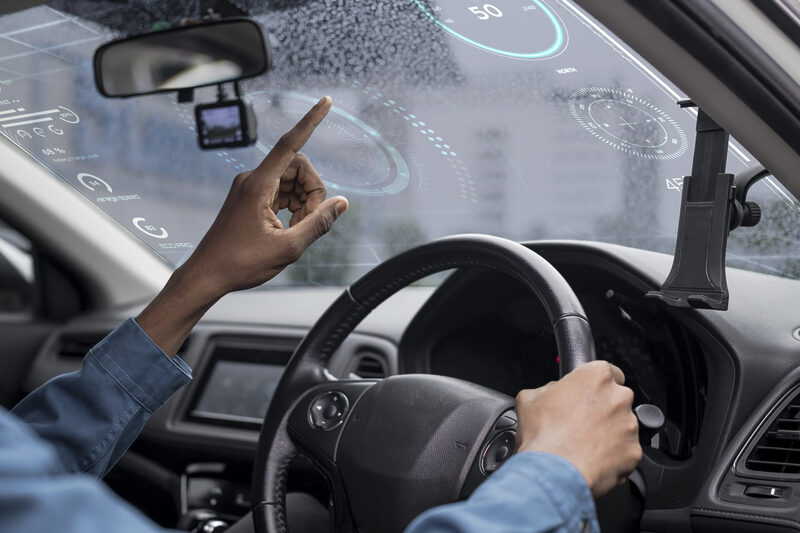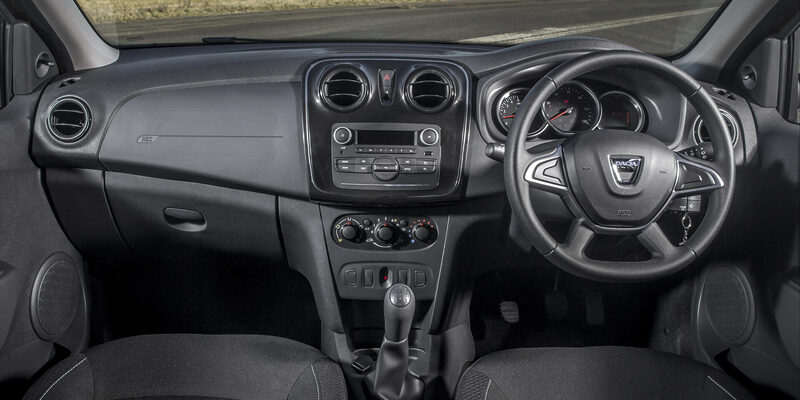
(Approx: 9min read)
Driving a car used to be pretty straightforward: you turned the ignition, checked your mirrors… and off you went. Today, stepping into a modern vehicle can feel more like entering the cockpit of a spaceship than a simple mode of transportation.
With sensors, screens, automated assistants and software updates galore, the driving experience is changing rapidly — and not necessarily in a way that benefits everyone.
In this article, we’ll explore how car technology is advancing at a pace that many drivers neither want, need or most worryingly, understand. We’ll also look at the implications of this trend — from escalating prices and added complication, to serious data protection and safety concerns.
Key facts at a glance:
- Today’s new cars have the computing power of 20 personal computers, feature about 100million lines of programming code and process around 25 gigabytes of data an hour. [1]
- 61% of drivers said they don’t use the advanced features in their cars regularly. 24% say they’ve turned off driver-assist features entirely, calling them “annoying” and “confusing”. [2]
- A 2022 survey conducted in the U.S. suggested only 28% of drivers felt comfortable using their Advanced Driver Assistance (ADAS) systems. Others said they didn’t understand them or trust them to “behave predictably”. [3]
- A separate survey from late 2024 indicated six in ten UK drivers thought modern tech was ‘taking the fun out of driving’. [6]
- A recent 2025 poll conducted by Warrantywise revealed nearly half (41%) of drivers do not recognise warning lights/symbols for newer tech systems such as lane assist, distance indicators and smart keys.
- In the UK, the average price of a new car exceeded £40,000 by middle 2024. This is up nearly 30% from just five years earlier. Much of that cost increase is due to electronics and software integration. [4]
- 58% of drivers admitted taking no steps to clear their personal data from a car’s advanced tech systems before they sell, leaving them vulnerable to crime.

A tech boom behind the wheel:
Over the past decade, automakers have embraced technology at pace.
Touchscreens have replaced buttons, software updates happen over-the-air and cars now park themselves, steer themselves and even suggest where you might like to go for dinner.
According to a 2024 report by McKinsey, the average car now contains over 100 million lines of programming code [1] — more than an F-35 fighter jet!
This includes everything from infotainment systems and navigation to driver assistance technologies like Adaptive Cruise Control, Lane-Keep Assist and Automated Emergency Braking.
At face value, this sounds impressive. But dig deeper into issues of practicality, usability and even trust… and the picture becomes a little more complicated.
Is there genuine demand for all this tech?
Despite manufacturers’ rush to dazzle customers with high-tech features, the statistics suggest most drivers aren’t exactly desperate for ‘digital dashboards’ or ‘AI co-pilots’.
A poll conducted by CarGurus in late 2024 revealed six in ten UK motorists felt modern tech was ‘taking the fun out of driving’. Respondents noted they miss – or will miss – various ‘old-school’ features on cars such as the analogue handbrake, the manual gearbox, real engine noise and key-ignition when they become completely obsolete. [6]
The modern tech features drivers stated they did like in the CarGurus survey were parking sensors, reversing cameras and heated seats.
In a separate 2023 survey conducted by J.D. Power, 61% of drivers said they don’t use the advanced features in their cars regularly. 24% admitted they’ve turned off driver-assist features entirely because they find them annoying and/or confusing. [2]
It also seems like it’s not just an issue of preference — it’s also about useability and confidence.
A 2022 AAA study revealed that only 28% of drivers felt confident using ADAS systems like lane-keeping or adaptive cruise control. Many either don’t understand the systems or say don’t trust them to behave predictably. [3]
Do drivers even know how to use the tech?
Even for those who want advanced technology, the learning curve can be steep. Modern vehicles come with thick manuals, often running over 500 pages. Even then, many features remain misunderstood.
In an exclusive recent poll by Warrantywise, it was revealed that nearly half – 41% – of drivers could not identify basic warning lights for ADAS systems such as lane assist, adaptive cruise control and smart key functions.
The gap in understanding is made worse by poor interface design. Many infotainment systems bury important safety settings under multiple menu layers, while essential functions like de-misting the windscreen are moved to touchscreens — requiring the driver to take their eyes off the road.
The lack of knowledge around ADAS is such that Jaguar Land Rover (JLR) announced in late 2024 they were pushing ahead with an initiative to increase driver awareness of critical ADAS systems. This comes after its own survey found many drivers are not clear about the technologies [5].
Notable from the JLR survey was drivers’ lack of awareness that their ADAS systems could disable or malfunction if the sensors the systems rely on get dirty.
Despite this, 20% of drivers still said they didn’t plan to clean their cars more regularly to ensure this didn’t happen.
The safety issue:
It’s true that some advanced systems can save lives. Automatic Emergency Braking and Blind Spot Monitoring, for instance, will prove effective in reducing accidents [7], but other features can backfire.
Lane-centring systems, for example, often struggle in poor weather or roadworks [8]. False alarms from collision alerts can startle drivers. In addition, there are growing concerns over ‘alert fatigue’ — when drivers start tuning out beeps and warnings because they happen too frequently or for seemingly no reason.
There’s also the issue of ‘semi-automation’. Many systems are branded with names like ‘Autopilot’ or ‘Drive Assist+’, which can give users a false sense of security. The reality is, these systems require constant supervision — and if drivers overestimate their capabilities, accidents can happen.

The data protection issue:
A report by Which? as far back as 2020 suggested that as many as 58% of drivers made no attempt to clear their personal data from their car’s tech systems before they sold it. 51% admitted not even bothering to un-sync their devices. [9]
Data owners are leaving behind could include contacts, addresses, places travelled… even bank details.
Even more concerningly, if the owner of a car downloads the app connected to it, then sells it to a new owner and doesn’t disconnect the app, that first owner may still be able to track the car, unlock it and even start its engine using that very application.
It is essential drivers take steps to clear the data from this advanced tech before they move the vehicle on to a new owner.
The cost of added complexity:
The financial implications of integrating advanced technology into vehicles are significant.
According to NimbleFins, the average price of a new car in the UK has risen by 40% since 2015. Current prices range from £18,500 to £45,000 on average, depending on the vehicle’s size and specifications. This upward trend is largely attributed to the inclusion of high-end electronic systems and software. [11]
Furthermore, the Department for Transport’s 2023 vehicle licensing statistics indicated zero-emission vehicles, which often come equipped with the latest technologies, accounted for only 16% of all new car registrations. [12]
While environmentally beneficial, these vehicles often come with higher price tags, potentially limiting accessibility for average consumers.
Tech features as a service – a glimpse of the future?
BMW made headlines (and drew criticism) in 2023 for offering heated seats as a £15p/m subscription and a heated steering wheel for £10p/m on their vehicles. Essentially requiring drivers to pay monthly to activate hardware already installed. [10]
They’re not alone. Mercedes-Benz has begun charging users for a subscription to unlock higher acceleration performance. [13] Tesla has also toyed with ‘self-driving’ features as paid upgrades.
This trend of ‘features-as-a-service’ frustrates many buyers, with Jack McKeown, Association of Scottish Motoring Writers president stating the move was “unsurprising yet dispiriting”. He went on to call leveraging even more profit out of subscription services “a worrying trend”.
A 2023 YouGov poll found that 78% of UK drivers were against the idea of paying subscriptions for car features. [14]
The consensus is clear: people want to own their cars, not rent their tech features.

Keeping things simple: A countertrend?
However, not all carmakers are in the tech race.
Companies like Dacia have carved out a niche by offering reliable, no-frills vehicles that appeal to drivers tired of complexity. Newer EV-only offerings like Amazon’s Slate Auto also look to lean into the ‘simplicity’ angle, hoping to lure customers with simpler offerings.
Dacia’s Sandero has consistently ranked among the most popular cars in Europe [15], thanks to its affordability and simplicity. In fact, Dacia’s sales grew 15% in 2023 — in stark contrast to luxury brands struggling with tech integration woes and high repair costs.
Even among premium car buyers, there’s a growing appetite for simplicity. Some manufacturers are now offering ‘de-tech’ options — removing features like gesture controls, touchpad navigation, or connected services by request.


So what needs to change?
Car technology isn’t inherently bad. When implemented thoughtfully and with proper education, it can make driving safer, more efficient and more enjoyable.
The problem lies in the execution and the assumption that ‘more tech is always better’.
So, to realign the industry with what drivers actually need:
1. Prioritise good interface design
Manufacturers should focus on intuitive interfaces and retain physical controls for critical functions. Minimalism shouldn’t come at the expense of usability.
2. Offer better education on how ADAS systems are properly used
Drivers need clear, accessible explanations — both at the dealership and through digital tutorials — to understand how their vehicle’s systems work. Some automakers now offer ‘tech orientation’ sessions, which could become standard practice.
3. No paywalls or subscriptions
If a car has the hardware, it should be active. Subscription models for safety or comfort features erode consumer trust.
4. Give buyers the choice
Not everyone wants a hyper-connected vehicle. Car companies should offer trim levels that strip back unnecessary complexity — ideally at a lower price.
Conclusion – smarter isn’t always better:
We live in a world where your fridge can text you when you’re out of milk, and your car can stream Netflix (while parked, hopefully!). But, just because we can add more tech doesn’t mean we should — especially when it affects affordability, safety, and simplicity.
Drivers today face a contradiction: cars have never been more capable, but they’ve also never been more confusing or costly. It’s time to ask whether all this complexity is solving real problems — or just creating new ones.
Ultimately, the best cars are the ones that enhance the driver’s experience, not overwhelm it. Let’s hope the industry remembers that.
Discover more.
Further Warrantywise articles you might find useful…

The new ’75-plate car registration – everything you need to know.
The upcoming release of the ’75-plate’ car registration marks the second major update of 2025, rolling out on 1st September. In … Continued

Hatchback or small SUV: Which is the smarter second-hand buy?
(Approx: 7min read) If you’re choosing a used car in 2025, the decision often comes down to two popular categories: … Continued

Top tips on how to prepare your car for winter.
(Approx: 9 min read) Picture the scene: It’s a freezing Monday morning as you get in to your car. Frost … Continued